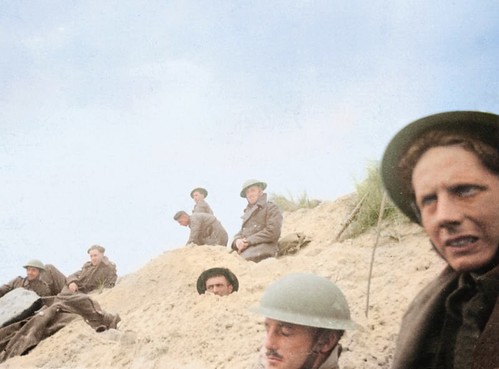The Battle of Dunkirk was a terrible Allied loss that captured the essence of the oncoming war in the British perspective. Although the Americans did not participate in Dunkirk, shockwaves were still felt in all Allied Nations. Now with it being the 84th anniversary, I believe it needs some more attention.
Spanning from May 26 to June 4 1940, Dunkirk was the British invasion of Northern France. On May 10, the German attack on the Netherlands began with the captures of key bridges and transportation deep within the Netherlands by paratroopers, the aim of which was opening the way for mobile ground forces. The Allied Defenders fell back and by noon on the 12, German tanks were on the border of Rotterdam. The queen and her government left the country for Great Britain on May 13, and the following day their army surrendered to the Nazis.
Also happening on May 10, was the invasion of Belgium. German airborne troops landed on the Fortress of Eben Emael and on the bridges over the Albert canal. On May 11, the Belgian line was breached and German tanks ran on while all Allied troops fell back somewhere between Antwerp and Namur. The entire German operation was completely reliant on General Paul Ludwig Von Kleist’s surprise attack through the hills and dense Ardennes forest. Eventually on May 15, the Germans broke through the French defenses into open country, turning towards the direction of the English channel.
The same day, general Henry Giraud assumed command of the French 9th Army and planned a counteroffensive in the form of a 25 mile line west of the Meuse river. On May 16 Giraud realized he couldn’t scrape up enough manpower, while the Germans had strengthened significantly. He was sadly too late to stop the German panzers(tanks), which were already beyond his defense once again by May 17.
Even if the French had been able to mount a counter offensive, they wouldn’t have found it very easy to crush the German attack. The southern flank was progressively lined by his motorized divisions which were relieved by infantry that were marching as fast as possible in a signature German style, called Blitzkrieg. Blitzkrieg is German for “lightning war” and is a style of fighting that, in short, overwhelms the enemy so much with planes, naval vessels, and ground troops that they can’t properly defend themselves before it’s already too late.
The only downfall is exhausted resources, like food and gasoline for the motorized infantry units. It got so bad that during the Battle of the Bulge, tank commanders were abandoning entire feets of tanks since they had no gas and were essentially useless at that point. Also, the idea of pervitin was thought of and distributed throughout the German forces to keep soldiers awake and in the fight. Pervitin was a form of methamphetamine that was ingested as tablets to boost stamina and energy output. The Germans were crazy as we know, and even Hitler was taking drugs just to feel normal! He had eye drops that essentially contained cocaine in them to better his eyes and vision.
Fighting got so bad that by mid-May, the allies went to their final backup plan: escape. Both the Germans and the British were heading towards the same point, a rear position in Arras, the last Escape Port that remained open for the British. With lots of fighting, the British managed to escape, not without heavy casualties. Men were lined up on the beaches waiting for boats to pick them up and bring them back across the English Channel, which made it a great target for German aircraft to drop bombs.
If you’ve ever watched the movie Dunkirk, they make a great depiction of what it was like to wait on the beach. Even after you made it onto a landing craft, you still weren’t safe from attack. You could still be shot at from shore and from aircraft, as well as hit underwater mines. It got so chaotic and the British were being pushed out in such large numbers, that they requested for civilian boats to come across the channel to pick up soldiers. This was also depicted in the movie Dunkirk.
With a successful extraction out of Dunkirk (kind of), the British went on to fight another day. Some say Dunkirk was a miracle, but the only miracle seen is the urgency of the evacuation and assistance by civilian forces being so ridiculously fast and in such great numbers, that it only took mere days to evacuate the remaining British forces from the entirety of Dunkirk.
In the end, about 198,000 British troops were taken away, as well as 140,000 Allied troops, mainly French, with most of the equipment being left behind. This was not a problem considering all of the allies were changing their economy to a pro-war economy, especially the Americans. In America, there was not a single factory in the nation working on anything except parts for the war. And it shows! There’s a reason the war was over in just 6 years, with only about half of those years having sufficient American soldiers overseas.

